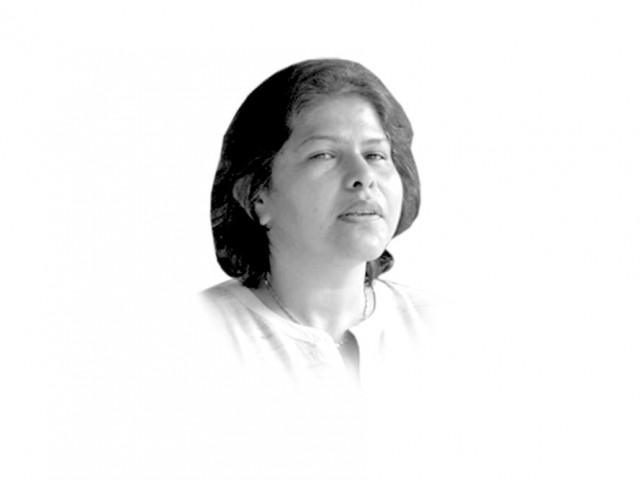Restraining academia
Agencies don’t understand what is lapped up on local media, makes a difficult sell in serious academic environments.

The state of the existing batch of scholars does not look very bright. Besides two to three better-trained and qualified names, the rest are barely managing. The choice of one professor was so bad that the recipient American university sent him back as he was not capable to teach. His presence as part of the teaching faculty casts shadows on the university’s credibility. One other scholar also seems to be in trouble because of his doubtful qualifications. Not to mention the attitude of the state bureaucracy, which makes these positions unappetising for those who are relatively qualified. Stopping or delaying payment of salary and rent is mentally distracting. This is done to keep a scholar in check, which is an awful way of dealing with a scholar. A scholar on one of these chairs is meant to encourage the research and study of Pakistan. He/she should not be penalised for the poor state of the country’s politics. A scholar is not meant to sell what its diplomats are unable to do themselves. Has any government ever discontinued payment to diplomats or intelligence people posted abroad for poor performance?
Creating Pakistan chairs was a visionary idea of the Bhutto government but making intelligence clearance a prerequisite is almost criminal. What capacity do intelligence personnel have, be it a simple spook or a head of a spy agency, to fathom the scholarly depth or capacity of an academic?
The problem with the Pakistani state is that it is constantly on the lookout for safe scholars which does not necessarily mean people are good at their jobs. The state’s search has taken it in the direction of buying foreign scholars of dubious distinction to write books on Pakistan, presenting the establishment’s perspective. There are two such books that were published in 2011. The state has also tried to intervene in private ventures for encouraging scholarship on Pakistan abroad. For instance, a retired technocrat of distinction tried to interfere with the selection process of one fellowship to a reputed American think tank with the intention of injecting what was considered a safe scholar. His effort failed because the think tank discouraged any compromise on merit. Later, the gent with dubious academic distinction was sent on one of the chairs abroad. The problem with this approach is that it becomes difficult for credible scholars to defend the state’s perspective, especially when it becomes increasingly questionable. It is very difficult for a scholar worth his/her salt to defend certain positions in the world. Nor should it be presumed that the world is ignorant of Pakistan’s reality. Unfortunately, intelligence agencies are given a wrong impression about what could be defended by hired hands pretending to be scholars. What the agencies don’t understand is that what they can pretend to sell through these hired scholars on local television channels or newspapers might be difficult to sell in a serious academic environment (interestingly, some of these hired scholars do not even have doctorate degrees).
This is the time the political government must get rid of this particular formula for selecting scholars. Scholarship must be freed from the control of the ISI, MI and IB. The selection process should also not be left at the behest of a board of bureaucrats but should include academics and experts as well. Moreover, it does not leave a good impression of the country when those appointed on these chairs are gagged through the blocking of their financial remunerations. Pakistan deserves attention in international universities. This scholarship will not only help built expertise on the country abroad but will also, at some point, feed back into the national system. The primary criterion has to be real expertise. This is a process which should be opened up to include private sector universities and Pakistani scholars in general. It’s only when Pakistan learns to select the most credible names that the country will benefit from what Bhutto envisioned during the 1970s. This kind of devolution is equally important.
Published in The Express Tribune, July 3rd, 2011.















COMMENTS
Comments are moderated and generally will be posted if they are on-topic and not abusive.
For more information, please see our Comments FAQ